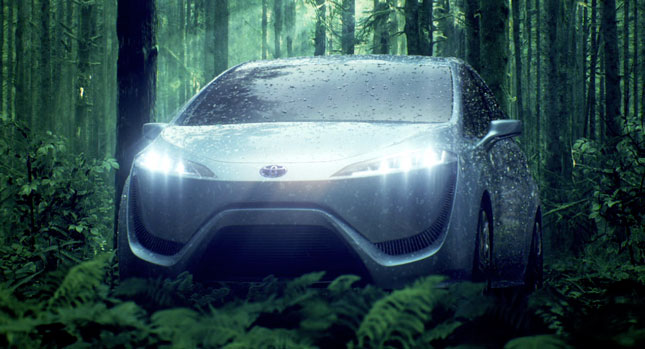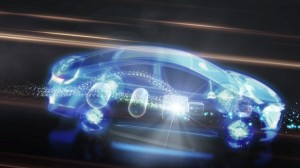Toyota Officially Schedules Production of Hydrogen Car; FCV-R Concept Coming to Tokyo
There’s an ongoing battle raging between two branches of automotive technology, both racing towards the same goal – zero-emissions personal transportation.
On the one hand you have brands like Tesla and, to a lesser extent, Nissan, who clearly favor the currently more advanced pure electric, plug-in vehicles. On the other hand you have automakers like Toyota, who are certainly willing to dabble in hybrids, but are structuring their long-term future towards a cleaner, more sustainable solution – hydrogen fuel cell vehicles. As of this week, Toyota has made one big step for the latter with their announcement that a revised FCV-R Concept (originally seen in 2011) will make its debut in Tokyo later this year.
But that’s not all… Toyota also says that this new concept will be a prequel to a hydrogen-powered production model coming in 2015. No more rumors, no more maybes; Toyota is officially talking the talk AND walking the walk. And with that, I present to you the upcoming Toyota FCV-R Concept:

As you can see, what we have here is an otherwise unremarkable midsize sedan sitting in a rainforest; no doubt the steamy condensation glistening on the car’s exterior only serves to further fuel the vehicle.
Yes Toyota, we get it; it runs on water.
But seriously, this is excellent news for HFCV proponents everywhere. Toyota says that the production version of the FCV-R Concept will likely go on sale at a price somewhere between $50K and $100K, which actually seems pretty low.
This relatively low price quote is only possible because of Toyota’s previously existing development in the hybrid arena. The hydrogen fuel cell system used in the FCV-R is actually an adjustment from the hybrid mechanics found in the Toyota Prius. Except, instead of a gas-engine paired with electric motors, Toyota is using an advanced, compact fuel cell stack capable of 3 KW/L, the highest power density ever produced in a hydrogen fuel cell.

These highly efficient fuel stacks are key in cost reduction because they allow Toyota to cut down on the number of fuel cells included in each vehicle, while still offering a maximum range of at least 420 miles. In addition, these high-density batteries should allow the water-based FCV to operate smoothly in extremely cold temperatures well below freezing.
According to Toyota, we’ll learn everything there is to know about the mechanics behind their new hydrogen-powered concept at the Frankfurt Motor Show, where they’ll be showcasing just the fuel cell system on its own. Then, we’ll see the full FCV-R Concept at the Tokyo Auto Show in November.
All in all, it seems like we should have a much firmer grasp on the future of hydrogen fuel-cell vehicles by the end of 2013. If Toyota had their way, FCVs would begin selling by the 10,000s sometime in the early to mid 2020’s. If this turns out to be true – and right now it seems like it might – then there should be no doubt left in anyone’s mind that Toyota has positioned themselves very well to take advantage of the automotive industry’s future. Either way, we’ll know more come Frankfurt, so stay tuned!
Source: Car Scoops


